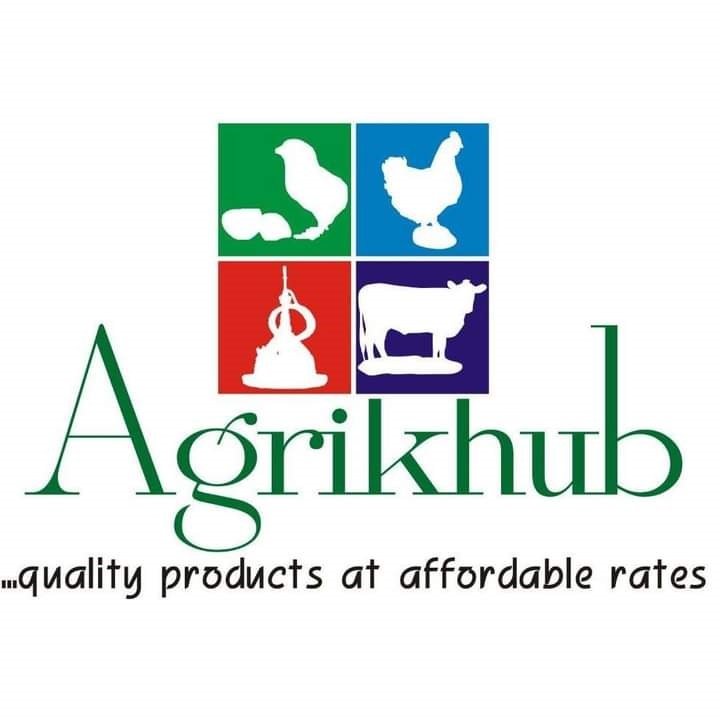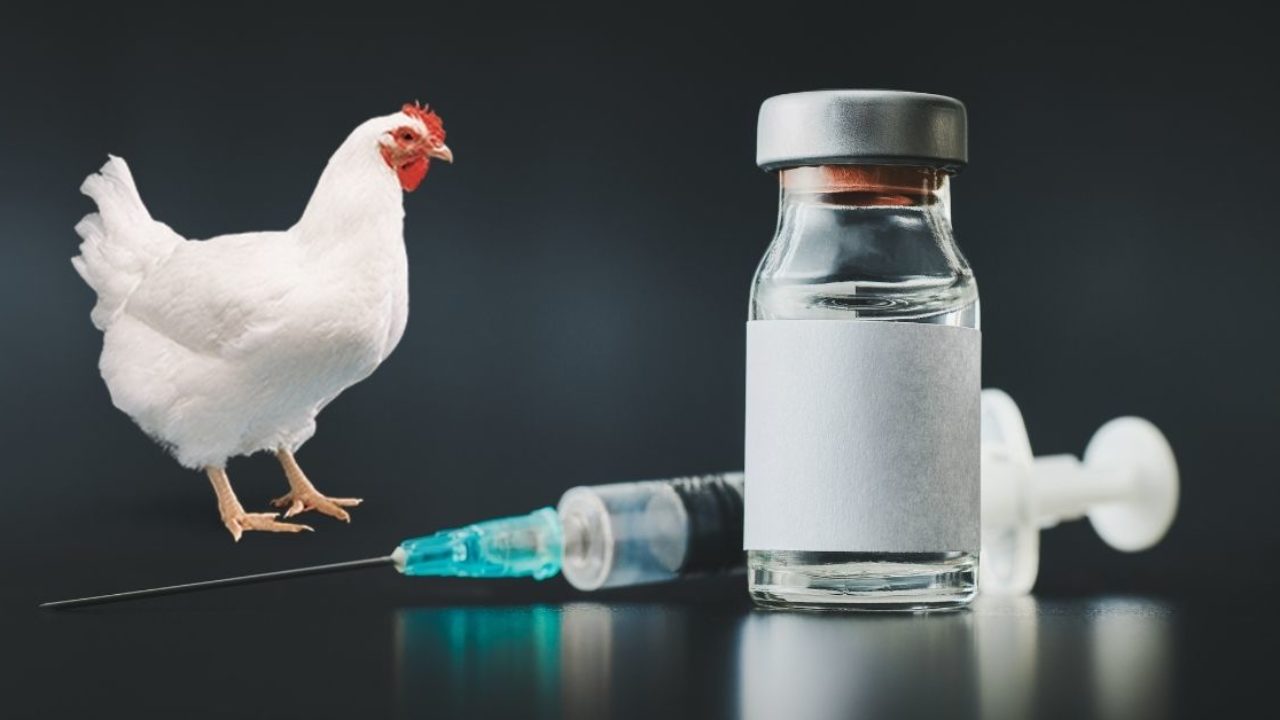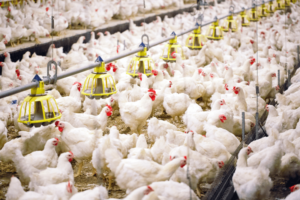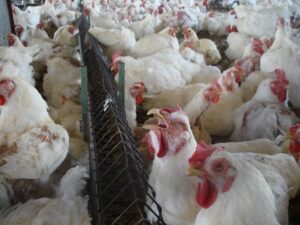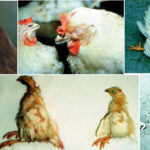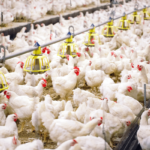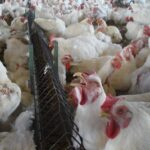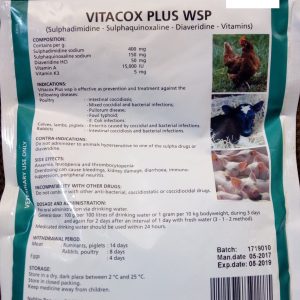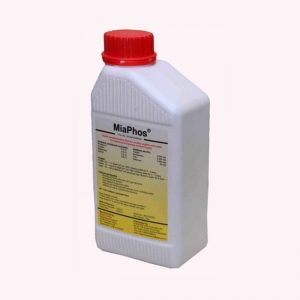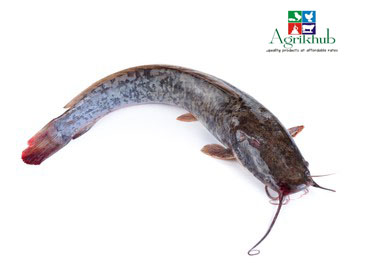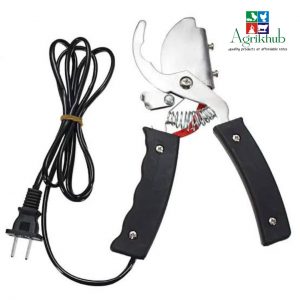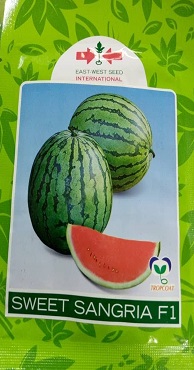Vaccination programs for broilers is an essential tool for disease prevention, particularly for viral diseases, in poultry farming. It causes an immune response in birds to protect them from the field infection. Vaccines usually contain the attenuated pathogen or at low concentrations to cause a mild infection, or antigenic components of the microorganism.
Poultry industry faces many infectious challenges that affect birds’ health and performance. They vary between farms but, because of the similarity between the production systems in intensive farms and the use of the same commercial lines, some challenges are ubiquitous. This is the reason why some diseases are included in the programs of farms across the country, despite they should be adjusted to the specific conditions of each farm and geographic area.
There are multiple factors that decrease vaccination efficacy, such as immunosuppression caused by non-optimal rearing conditions that provoke stress and immunosuppressive agents. Immunostimulant pronutrients prevent immunosuppression and improve vaccinations efficacy to help birds achieve greater protection.
Diseases associated with vaccination programs
There is no ideal vaccination program capable of meeting the requirements of all farms: they need to be designed according to the conditions of each of them. Disease prevalence and infectious pressure in the area are two factors to consider when designing them.
In broiler chickens, vaccination programs are relatively simple. The most frequently used vaccines in the USA are:
- Marek’s disease: Ubiquitous virus in the USA. Despite it hardly causes clinical signs, vaccine is usually included in the programs because this virus is an important cause of immunosuppression: makes animals prone to suffer other infections and decreases vaccination efficacy [1].
- Gumboro disease (IBD): The type of vaccine varies depending on the infectious pressure, which usually increases in winter (low temperatures and less ventilation). It causes immunosuppression, too, as it affects the bursa, which is the organ that produces B lymphocytes in birds.
- Infectious bronchitis (IBV): This virus has multiple strains so vaccines may not be completely protective if the strain does not correlate with that in the field. It has a strong immunosuppressive capacity and infected chickens showed to have decreased response to IBV and other vaccines, such as Newcastle’s [2], [3].
- Newcastle disease (ND): Different vaccine types are available and should be chosen according to the history of the farm, infection pressure and, especially, to the disease prevalence in the area, since some states are considered to be free of Newcastle.
Prevention of these diseases is important because of their direct consequences and their immunosuppressive effects, which reduce the animal capacity to react against infections and the efficacy of vaccines.
Main causes of vaccination failure
Vaccine failure takes place when an animal is not properly protected after receiving a vaccine and, therefore, contracts the disease anyway. Vaccine efficacy can be evaluated through ELISA tests that quantify antibody production levels in blood serum.

Many variables can reduce vaccines’ efficacy and can be related to the environment, the management practices, the animal, or the vaccine.
The most important ones are:
- Related to the vaccine: inadequate storage conditions or application methods can cause vaccine failures. Also, choosing a vaccine strain different from the field’s without cross-immunity or a type of vaccine that is not the proper one. Manufacturer and professionals’ indications must always be considered to design an effective vaccination program.
- Maternal immunity: in young chickens, maternal antibodies may interfere with the replication of live vaccines and reduce their efficacy. To prevent it, the breeder vaccination program should be considered when designing broilers’.
- Immunosuppression: important because it can be caused by many factors that are frequent in intensive production systems. It may appear due to productive stress, since selection for highly production breeds causes an overstraining of the organs and the immune system, making animals weaker; management, environmental and nutritional factors; and immunosuppressive diseases.
The latter have a huge impact on poultry production because they are ubiquitous in the USA, such as Marek’s disease, infectious bronchitis and Gumboro disease.
Ways to naturally prevent vaccine failure and improve vaccine efficacy
Vaccine failures related to immunosuppression can be prevented by using immunostimulant pronutrients, botanic molecules that physiologically stimulate the activity of the immune system.
Their metagenetic mechanism of action is based on the expression of certain genes (CCL20, KIF19, among others) in immune cells to promote specific activities related to the protection against pathogens [4], [5].
Besides, pronutrients can also improve vaccines’ efficacy in healthy birds, observed as an increase of their antibody titers.
Their efficacy in broilers has been evaluated in many trials using a scientific methodology, in which immunostimulant pronutrients administered the days prior and post vaccination improved by 6% to 23% the protection against specific diseases, based on the increase of the antibody titers These active principles proved to be effective during the withdrawal period, too. When antibiotics are no longer allowed, pronutrients increase resistance to infections: in chickens challenged with 5000 colony forming units (CFU) of E. coli on day 35 of age, mortality was reduced by 38% and weight remained stable despite the challenge. Pronutrients obtained similar results to those of antibiotics .
Conclusions
The design and implementation of effective vaccination programs are essential to prevent diseases that usually affect broiler farms and should be based on disease prevalence in the area, the farm conditions, and the correct choice of the type of vaccine.
There are multiple factors that can cause vaccine failure and usually related to immunosuppression caused by productive stress and immunosuppressive diseases. Immunostimulant pronutrients ensure a proper functioning of the immune system, so that birds properly react to vaccinations and obtain a better protection against specific diseases (6 to 25% improvement).
CLICK HERE for recommended vaccination chart for your broiler
